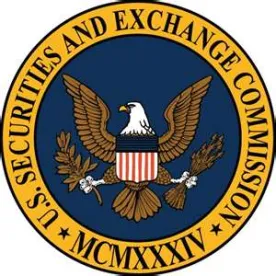-
Staff grants relief to some, denies relief to others.
-
Ownership threshold appears to be determining factor.
-
Important implications for companies that have adopted or are considering adoption of a proxy access bylaw.
The staff of the SEC Division of Corporation Finance has posted on its website 18 no-action letters related to requests for exclusion of proxy access shareholder proposals from proxy statements. The SEC staff granted relief to 15 of the 18 companies on the basis that the companies had already “substantially implemented” the shareholder proposals under Rule 14a-8(i)(10), with the key determining factor for granting relief apparently being a 3% ownership threshold in the previously adopted bylaw.
The 15 proposals for which the SEC staff granted no-action relief requested a proxy access bylaw that would permit a stockholder or group of stockholders that have held at least 3% of the company’s outstanding common stock continuously for at least 3 years, with no cap on aggregation of holders, to nominate the greater of up to 25% of the board or 2 directors. The proposals also prohibited additional restrictions on board nominees, such as independence requirements or lack of a criminal background.
For the no-action letters that received favorable responses, the SEC staff was willing to concur that the proposals had been substantially implemented even when the company’s existing bylaw contained a 20-holder aggregation cap, nomination rights for the greater of up to 20% (rather than 25%) of the board or 2 directors or applied additional restrictions not applicable to other nominees. However, the SEC staff denied no-action relief to three companies whose proxy access bylaws contained a 5% (rather than 3%) ownership threshold, indicating that the ownership threshold was the key factor in the SEC staff’s determination of whether a company had substantially implemented the proxy access shareholder proposal.
In light of these no-action letter responses, companies that have adopted or are considering adoption of a proxy access bylaw should consider the following:
-
Companies adopting a proxy access bylaw with an ownership threshold of greater than 3% likely will not be able to exclude future shareholder proposals proposing a 3% ownership threshold on the basis of substantial implementation.
-
Companies adopting a proxy access bylaw with a 3% ownership threshold will have flexibility in the design of the other terms of the bylaw, including aggregation limits, applicable percentage of the board and background or qualification restrictions, while maintaining the ability to exclude future shareholder proposals with a 3% ownership threshold and differing other terms. Of course, the limits of that flexibility remain to be seen. For example, it is not clear that an aggregation cap much smaller than 20 holders would result in the ability to exclude a shareholder proposal with a higher aggregation cap. Companies should take comfort, however, that including reasonable aggregation or other limitations, at least within the bounds of the bylaws that resulted in no-action relief, will not prevent a determination of substantial implementation under Rule 14a-8(i)(10).



 />i
/>i

